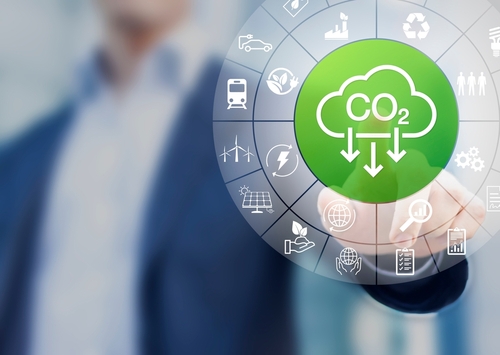
A new plan released by the Biden Administration Tuesday will use a whole-of-government approach to cutting all greenhouse gas emissions from the transportation sector by 2050.
The plan, the U.S. National Blueprint for Transportation Decarbonization, was developed by the U.S. Departments of Transportation (DOT), Energy (DOE), Housing and Urban Development (HUD) in partnership with the Environmental Protection Agency (EPA) and builds on the Bipartisan Infrastructure Law and the Inflation Reduction Act to transform transportation while reaching net-zero carbon emissions by 2050.
“Transportation policy is inseparable from housing and energy policy, and transportation accounts for a major share of US greenhouse gas emissions, so we must work together in an integrated way to confront the climate crisis,” U.S. Secretary of Transportation Pete Buttigieg said. “Every decision about transportation is also an opportunity to build a cleaner, healthier, more prosperous future. When our air is cleaner; when more people can get good-paying jobs; when everyone stays connected to the resources they need and the people they love, we are all better off.”
The blueprint was announced jointly by Buttigieg, U.S. Secretary of Energy Jennifer M. Granholm, Secretary of Housing and Urban Development Marcia Fudge, and Environmental Protection Agency Administrator Michael S. Regan and is the first milestone of the Memorandum of Understanding reached by the agencies in September 2022. The group said more detailed action plans will be released as they are developed and implemented by the agencies in cooperation with state, local, and tribal governments, as well as non-governmental stakeholders.
“The domestic transportation sector presents an enormous opportunity to drastically reduce emissions that accelerate climate change and reduce harmful pollution,” Granholm said. “DOE is prepared to implement this Blueprint alongside our partners within the Biden-Harris Administration to ensure all Americans feel the benefits of the clean transportation transition: good-paying manufacturing jobs, better air quality, and lower transportation costs.”
The transportation sector accounts for one-third of the greenhouse gas emissions in the United States, which negatively impacts the health and well-being of millions of Americans, particularly those in disadvantaged communities, the group said.
A well-planned transition to decarbonized transportation addresses emissions, and other factors, while creating good-paying jobs in all segments of the transportation sector and strengthening America’s energy independence, the group said.